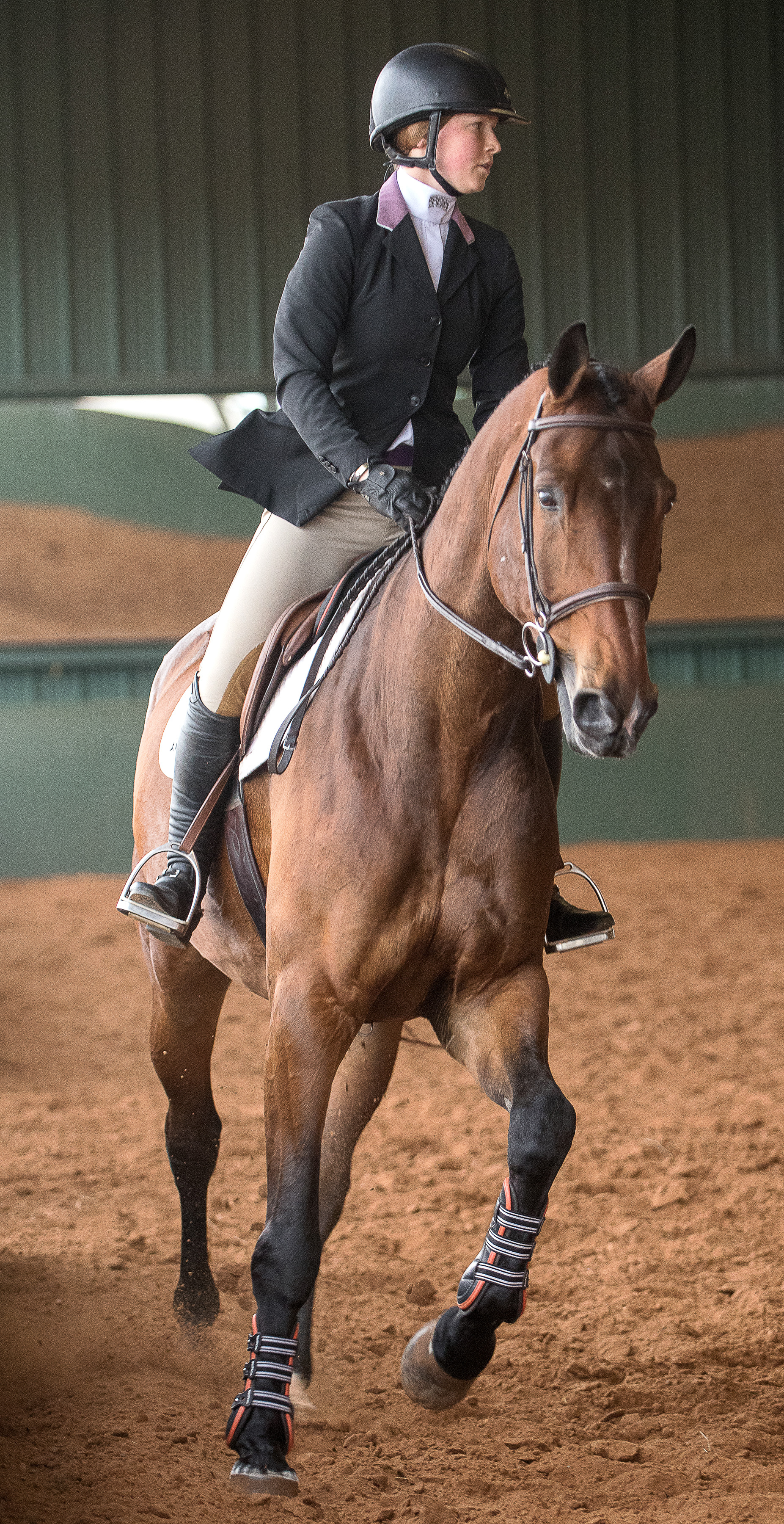How Equestrian Competition Works
Horseplay: Game Day Logistics. TCU and other schools face off for points in four equestrian events.
How Equestrian Competition Works
Horseplay: Game Day Logistics. TCU and other schools face off for points in four equestrian events.
The Events
Hunt Seat Equitation Over Fences:
The rider guides her horse through an obstacle course of jumps. Possible points: 100.
Hunt Seat Equitation on the Flat:
The rider and her horse perform nine movements in a 40-by-20-meter arena. Possible points: 100.
Western Horsemanship:
The rider works her horse through an assigned set of maneuvers, usually seven to nine. Riders begin with a base score of 70 and receive a -1.5 to +1.5 score for each maneuver.
Western Reining:
The rider takes her horse through an assigned pattern that includes varying speeds, spins, circles and stops — often including the dramatic sliding stop, a crowd favorite. Riders begin with a base score of 70 and receive a -1.5 to +1.5 score for each maneuver.
The Rules
Collegiate equestrian consists of four events: two English (hunt seat) and two Western. A rider is judged on her control of the horse as well as her own body position.
Riders don’t compete on their personal horses. The university hosting the event provides them. Two riders from opposing teams compete using the same horse, with the winner of each individual match scoring a point for her school.
NCAA rules allow schools to take part in 15 competitions during the regular season.
For a typical competition, each of the four events would have 10 riders, five from each school competing on the five horses provided. The two teams draw to match up competing riders and their assigned horses.
With five individual matches in each of the four events, there are 20 points up for grabs, and the team with the most points wins.
Riders get four minutes to practice on their assigned mount before competing.

Kari Hancock of the TCU equestrian team competes in Equitation over Fences at round 1 of the Big 12 Championship in Waco, Texas. Photo by Glen E. Ellman
“My favorite part about competition is getting on a new horse — an unfamiliar horse you’ve never ridden before — and having four minutes to figure out what the horse likes, what they don’t like, what they know, what they do best and come up with a game plan for your pattern or course in order to set your horse up best to complete the path you want them to,” said Kari Hancock ’17, who competed in both hunt seat events. She was the 2017 Big 12 Equestrian Scholar-Athlete of the Year.
“I really enjoy the mind game of being in crunch time and trying to figure out what this 1,200-pound animal is thinking and how is your communication going to come across the best to get what you want done in order to win.”
Postseason Equestrian Play
After the regular season, teams compete at the Big 12 Championship in March and, if they earn an invitation, the National Collegiate Equestrian Association’s National Championship in April.
2017 Big 12 Championship | Waco, Texas
Three conference schools competed in varsity equestrian: TCU, Baylor and Oklahoma State. TCU and Oklahoma State took three horses per event in fences, flat and horsemanship and five horses for reining – a total of 14 horses each. In addition to its 14 horses, host school Baylor also provided alternates in case any of the horses became lame or couldn’t be ridden.
Two schools faced off at a time until all three had matched up against each other in the events. To ensure neutrality, the school sitting out a match provided three horses for an event, while the schools going head to head provided one horse apiece. Horses and opposing rider matchups were assigned by random draw.
TCU will host the 2018 Big 12 Championship on March 30-31.
2017 NCEA National Championship | Waco, Texas
Teams earn an invitation to the national championship based on their regular-season record, which also determines seeding. Similar to a baseball tournament format, schools still compete two at a time based on their seeding.
At each National Collegiate Equestrian Association meet during the regular season, the away team nominates horses it would like to see again at nationals. A championship committee selects the horses and, once at nationals, ranks each horse. Event stewards then place neutral horses into competitions. TCU took 14 horses.

Your comments are welcome
1 Comment
Do you guys not have a team that isn’t set up IEA style?
Related reading:
Features, Sports: Riff Ram
Equestrian Team Is Ready for Another Run
After back-to-back final four finishes, TCU saddles up for a new year.
Features, Sports: Riff Ram
TCU Equestrian Competitors Ride High in Academic Accolades
Student-athletes keep a tight rein on their academic studies.